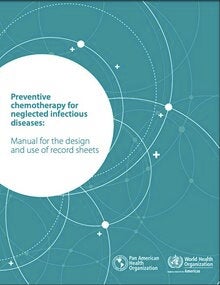Neglected infectious diseases (NIDs) affect populations living in less developed socioeconomic conditions, with geographical and cultural barriers that hinder their access to health services. Due to their living conditions, these people are at greater risk of these diseases, disability, and death; therefore, health gaps are widened if access to effective interventions is not guaranteed. Various infectious agents cause NIDs, most of which can cause chronic illnesses with long-term effects on health. Timely and effective treatment is essential in order to reduce the occurrence, magnitude, severity, and sequelae of NIDs. Access to treatment helps increase the human capital of the most vulnerable and left-behind populations. The availability of cost-effective interventions such as preventive chemotherapy offers the opportunity to help reduce inequities. However, in order to reduce the risk of infection and achieve the expected impact, it is necessary not only to ensure treatment, but also to improve housing and environmental conditions, as well as access to safe water and basic sanitation... This manual is intended to be used in collaboration with countries to measure preventive chemotherapy coverage. It establishes the steps to design and implement preventive chemotherapy records for the prevention, control, and elimination of NIDs. The concepts and procedures included in this manual can be applied to various NIDs and specific examples are given to design records for programs aimed at STH, lymphatic filariasis, and trachoma. Several countries in the Americas are conducting control and elimination activities for these diseases, an important component of which is preventive chemotherapy.
|

